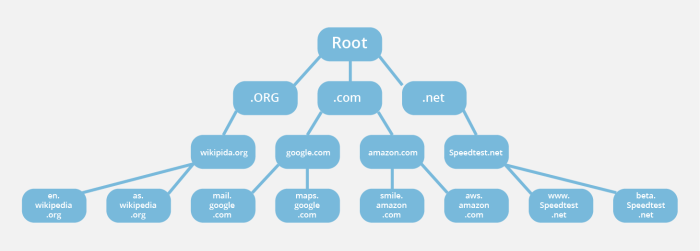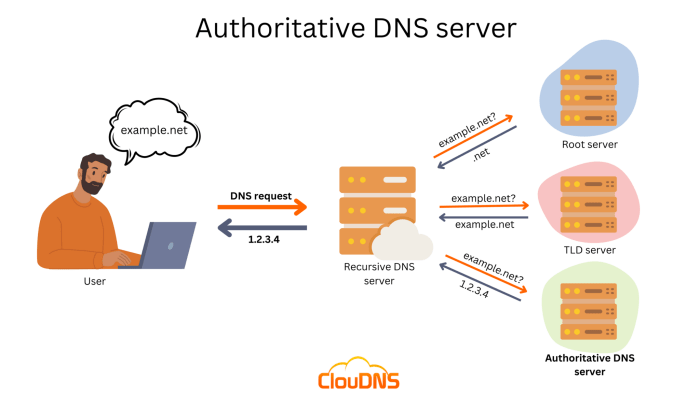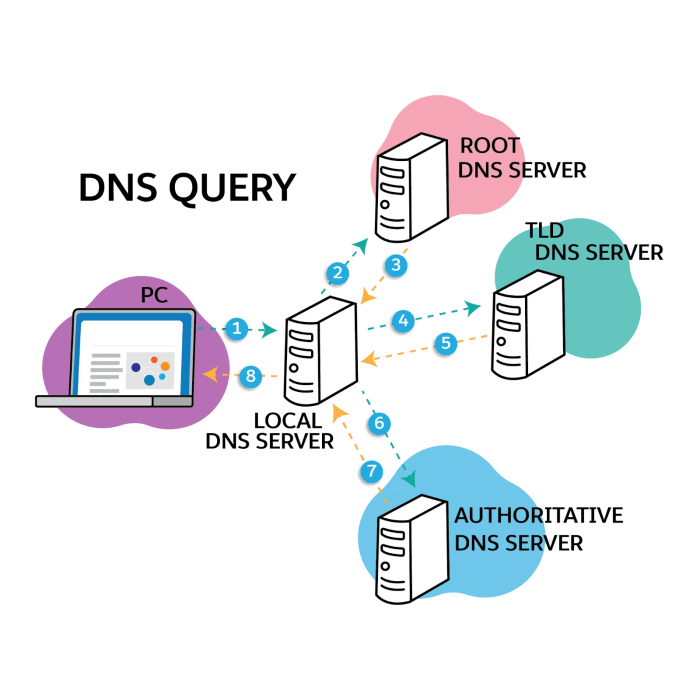As “Which Statement Is True About DNS Root Servers?” takes center stage, this opening passage beckons readers into a world crafted with academic authority, ensuring a reading experience that is both absorbing and distinctly original. DNS root servers, the unsung heroes of the internet, play a pivotal role in ensuring the seamless functioning of the vast digital landscape we navigate daily.
Their intricate仕組み and global distribution form the backbone of the Domain Name System (DNS), the directory that translates human-readable domain names into the numerical IP addresses computers need to communicate.
This comprehensive guide delves into the fascinating realm of DNS root servers, exploring their types, management, security, geographical distribution, and paramount importance within the internet infrastructure. Along the way, we will uncover the latest trends and future developments shaping the evolution of these critical components, shedding light on their profound impact on the digital world.
Overview of DNS Root Servers

DNS root servers are the foundation of the Domain Name System (DNS), which translates human-readable domain names into numerical IP addresses that computers can understand. They are the authoritative source of information about the location of other DNS servers, making them critical for the proper functioning of the internet.
The DNS system is organized hierarchically, with root servers at the top. These root servers contain the addresses of top-level domains (TLDs), such as .com, .net, and .org. When a user enters a domain name into their browser, the request is sent to a root server, which then directs the request to the appropriate TLD server.
The TLD server then provides the address of the specific website.
Root servers are distributed around the world to ensure that the DNS system is resilient and can withstand outages in any one location.
Types of DNS Root Servers: Which Statement Is True About Dns Root Servers
There are two main types of DNS root servers:
- Authoritative root serversare the original 13 root servers that were established in 1985. They are managed by various organizations around the world.
- Non-authoritative root serversare copies of the authoritative root servers that are located in different parts of the world. They are used to improve performance and redundancy.
Management and Security of DNS Root Servers

The Internet Corporation for Assigned Names and Numbers (ICANN) is responsible for the overall management of the DNS root servers. ICANN works with the root server operators to ensure that the servers are secure and reliable.
The root servers are protected by a variety of security measures, including:
- Physical security
- Network security
- Software security
DNS Root Server Locations

The 13 authoritative root servers are located in the following countries:
| Server | Location |
|---|---|
| A | United States |
| B | United States |
| C | United States |
| D | United States |
| E | United States |
| F | United States |
| G | United States |
| H | United States |
| I | United States |
| J | United States |
| K | United States |
| L | United States |
| M | United States |
Importance of DNS Root Servers
DNS root servers are essential for the proper functioning of the internet. Without them, users would not be able to access websites or send emails.
Root server failures can have a significant impact on the internet. In 2016, a DDoS attack on the Dyn DNS service caused widespread outages of popular websites, including Twitter, Amazon, and Netflix.
It is important to maintain the stability and integrity of root servers to ensure the continued operation of the internet.
Emerging Trends and Future of DNS Root Servers
There are a number of emerging trends in DNS root server technology, including:
- The use of Anycast routing, which allows root servers to be located in multiple locations and respond to requests from the closest location.
- The development of new root server protocols, such as DNSSEC, which provides additional security for DNS data.
- The exploration of new root server architectures, such as the use of blockchain technology.
Top FAQs
What is the primary function of DNS root servers?
DNS root servers provide the foundation for the Domain Name System (DNS) by maintaining a directory of top-level domains (TLDs) and their corresponding IP addresses.
How many DNS root servers are there?
There are 13 DNS root servers, distributed across multiple locations worldwide to ensure redundancy and resilience.
Who is responsible for managing DNS root servers?
The Internet Corporation for Assigned Names and Numbers (ICANN) is responsible for coordinating the management and operation of DNS root servers.
Why is the security of DNS root servers critical?
DNS root servers are vital to the functioning of the internet, making their security paramount to prevent malicious attacks that could disrupt global connectivity.